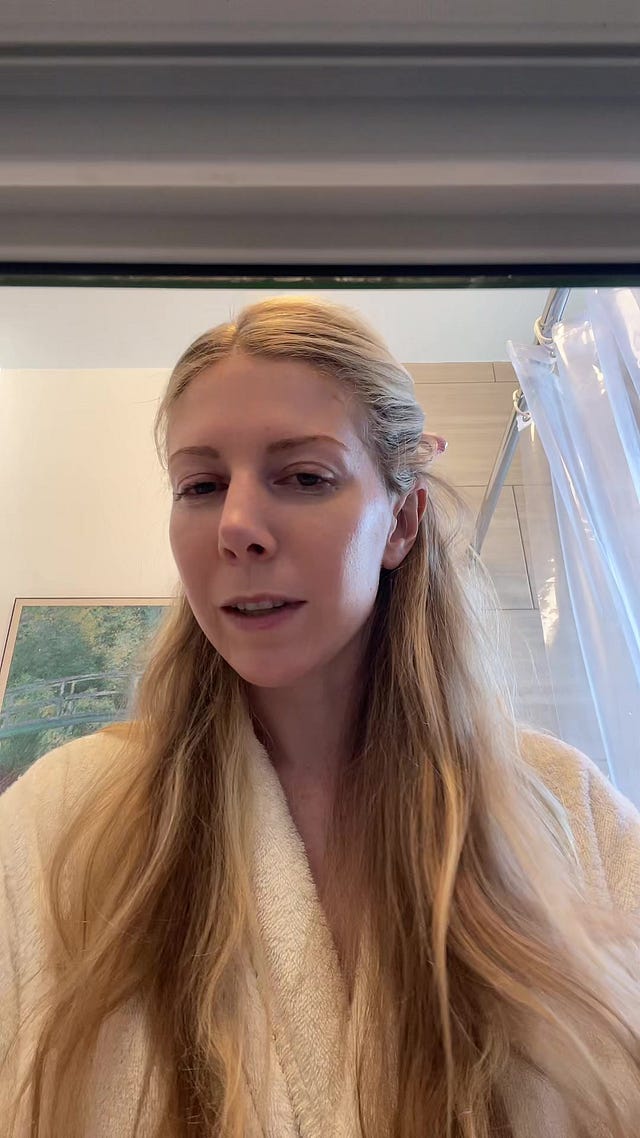The beginning of the end of influencers?
Followers are telling creators not to quit their day jobs.
smh fashion week hasn’t been the same since the one (1) time I went to one (1) show in 2015. —Kate
After the clusterfuck that was New York Fashion Week, anger at influencers seems to be at an all-time high. Specifically, the TikTokkers who were accused of gaming their way onto invite lists and subsequently overwhelming events, diluting the exclusivity longtime attendees covet.
But anti-influencer anger has been bubbling under the surface for the past few months. It has even given rise to a new demand: We don’t want full-time influencers anymore, the crowd chants. We want influencers with day jobs.
Let’s rewind. As summer wound down, a certain subreddit revved up: r/NYCInfluencerSnark. A TikTok about the subreddit went NYC-viral, cementing it as the destination for snarking on the creators dominating many people’s For You pages. It now has 20,000 members. Mostly, the snarkers call out influencer no-nos like photoshopping and roll their eyes at the out-of-touch posts and remarks that tend to tumble out from the mouths of the East coast’s internet elite.
Meanwhile, in Los Angeles, creator Tara Lynn recently stumbled into a PR disaster. After making a now-deleted TikTok video about how the app Be Real made her feel like she was the only one of her friends working and not in bed every day, commenters jumped.
To be fair to Tara, those friends are probably also influencers, and so her comments were most likely directed toward her own community. But her TikTok kicked off a weeks-long kerfuffle among “regular” people on TikTok responding what it seemed like she said. It seemed like this person who, as far as any of her followers can see, is privileged to make TikTok videos for a living, was accusing people who are overworked and underpaid of being lazy.
Thanks in part to the effects of COVID and the way apps like TikTok have provided unobstructed views into a billion people’s living rooms, the very online have perhaps never been more class aware. And for what seems to be a growing number of followers, it is no longer so entertaining to watch an influencer perform a life of luxury while you yourself labor at your unglamorous work. In fact, it’s maddening. Which is why publications like Business of Fashion are documenting the rise of influencers who create content while maintaining more typical day jobs, and advising brands to work with them.
Talk of this trend is taking over TikTok, too, with many people confessing their dissatisfaction with the influencer status quo. But as FluentlyForward pointed out over the weekend, people don’t really want front-row seats to an influencer’s run-of-the-mill marketing (or whatever) job. They just want them to be relatable.
 Tiktok failed to load.
Tiktok failed to load.Enable 3rd party cookies or use another browser
The relationship between an influencer and their followers is based in part on a lie: Buy a certain product, and your life can look like mine. But as a creator I recently had coffee with pointed out, the influencer lifestyle is only really attainable by rich people and other full-time influencers.
A prominent home-decor creator’s house, for example, looks the way it does not just because the creator has good taste, but because they have the ability to strike deals with brands and get gifts from publicists—which are then displayed in posts that say, “You, too, can have a house like this if you buy these things.” But a majority of their followers can’t afford to buy all those things. It's unlikely that even the creator, who probably did not buy them, can. The illusion that influencers are modeling authentic, and authentically replicable, lifestyles is vanishing.
The cycle of a regular person getting internet famous, cashing in on it, and then getting backlash is a tale as old as YouTube. Your heart might not break for them, but influencers are in a bind. We give them success, but then don’t want them to openly indulge in the lifestyle that success allows for. This all leads me to a question I’ve been asking myself for a few months now: What comes after influencers as we’ve known them for the past decade? Maybe we're about to find out.



